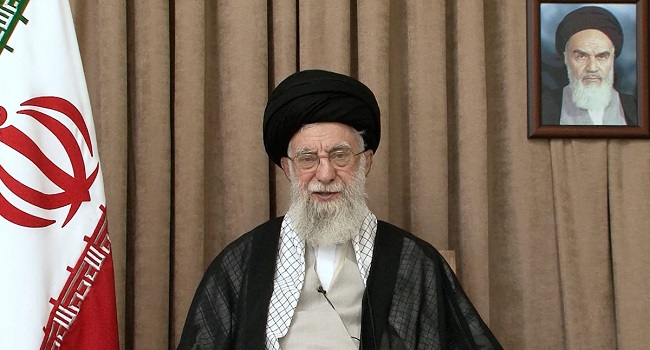Iran has dismissed suggestions that it is preparing to resume nuclear talks with the United States following the recent 12-day war with Israel, accusing Washington of inflating the impact of its military strikes.
The war—the most intense yet between Iran and Israel—halted ongoing U.S.-Iran nuclear discussions. Despite President Donald Trump’s announcement that talks would resume next week, Iranian Foreign Minister Abbas Araghchi rejected such claims, calling them speculative and unsubstantiated.
“There is no agreement or plan to begin new negotiations,” Araghchi said in a state TV address. “Any suggestion to the contrary should not be taken seriously.”
This statement came shortly after Iran’s parliament passed a bill suspending cooperation with the UN’s nuclear watchdog.
Meanwhile, Supreme Leader Ayatollah Ali Khamenei accused Trump of exaggerating the success of U.S. strikes on Iran’s nuclear facilities, declaring in his first public address since the ceasefire that the Islamic Republic had achieved “victory” and dealt the U.S. a humiliating blow.
“The damage was exaggerated to serve a political narrative,” Khamenei stated, downplaying reports that Iran’s nuclear programme had been set back by decades.
While Araghchi acknowledged the damage as “serious,” he said assessments were still ongoing. Trump, however, claimed American B-2 bombers had “obliterated” key sites like the underground Fordo uranium enrichment facility.
There is speculation that Iran may have secretly moved enriched uranium before the strikes, a claim Trump denied on his Truth Social account, asserting the material was “too dangerous, heavy, and hard to move.”
Khamenei dismissed those claims and insisted Iran had not only withstood the attacks but retaliated effectively. Both Iran and Israel have declared victory, with Israeli Prime Minister Benjamin Netanyahu calling the outcome a “historic win,” and Khamenei insisting Israel was brought to the “brink of collapse.”
US Intelligence Debate
In Washington, a classified intelligence leak suggested the damage might not be as extensive as portrayed—possibly delaying Iran’s nuclear efforts by only a few months.
Despite this, CIA Director John Ratcliffe and Pentagon Chief Pete Hegseth defended the operation. Hegseth said bunker-buster bombs and Tomahawk missiles targeted critical underground sites, asserting that President Trump had effectively crippled Iran’s nuclear capacity.
International Reactions
French President Emmanuel Macron, speaking after an EU summit, called the U.S. strikes “genuinely effective” but warned against Iran possibly withdrawing from the global non-proliferation treaty.
The conflict resulted in heavy casualties. Iran’s health ministry reported at least 627 civilian deaths from Israeli airstrikes. In contrast, Iranian attacks reportedly killed 28 people in Israel.
Iran maintains that its nuclear programme is for peaceful purposes and has denied seeking nuclear weapons. While Tehran has occasionally signaled openness to future talks, its current stance is a firm rejection of U.S. overtures in the wake of the recent war.

